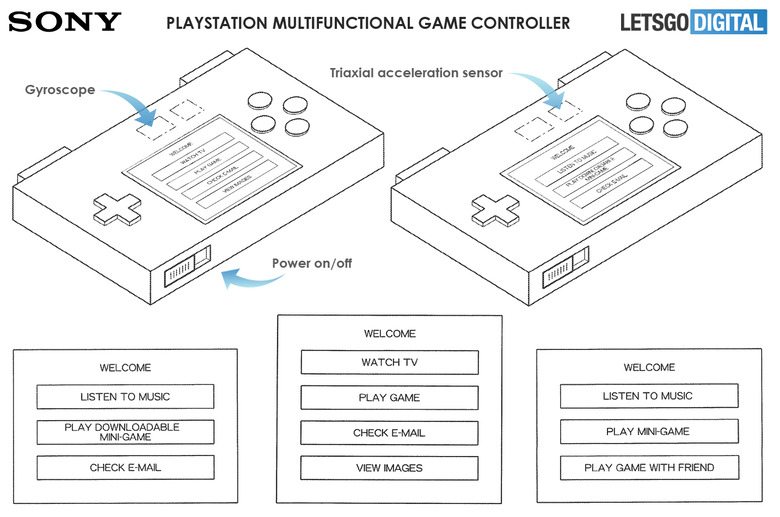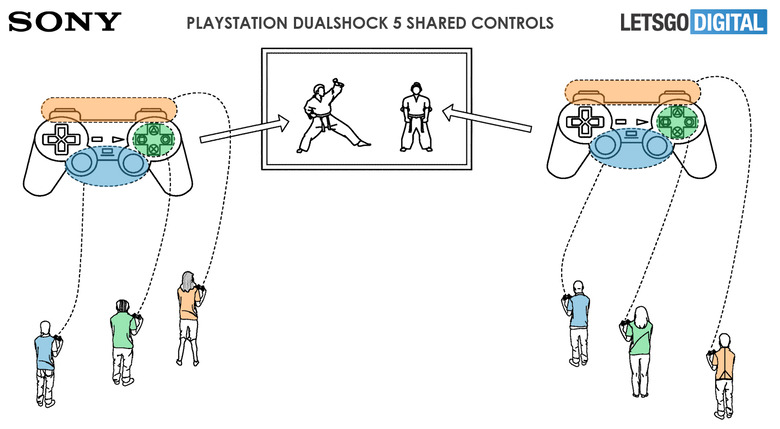PlayStation Controller Patents Are Both Innovative And Ridiculous
The PlayStation 5 is coming really soon and yet there's still some uncertainty as to what it would look like. The "V" shaped console that was revealed in a patent and a subsequent photo may be interesting but there's also a slim chance that this PS5 was only meant to be seen and used by developers. It isn't just the console itself that is shrouded in mystery but the DUALSHOCK5 controllers as well. While rumors claim that the PS5 controller won't differ that much from its predecessor, at least two patents from Sony show how the company had ideas that could make the input device a lot more interesting.
Sony has more or less formally bowed out of the mobile console market, leaving the Nintendo Switch as the lone competitor in that arena. That said, it may have thought of a way to still compete without really competing, and it might be taking a few pages out of everyone's game streaming book. One patent, for example, introduces a controller that seems to be a blocky Wii U controller, but one that you can supposedly take with you anywhere.

This patent shows a rectangular box of a controller with a large screen in the middle, gyro and motion sensors inside, and even a potential heart rate monitor and fingerprint scanner. The idea is practically to be able to play your PlayStation games that are running on the console at home, more like Samsung's new PlayGalaxy Link rather than Google Stadia.Another patent has a lofty goal with a rather comical implementation. It wants to make even single-player games more social by splitting up control of a single player character between two to three players. One player controls the equivalent of analog sticks while another has the D-Pad and yet another has the shoulder buttons and triggers. All three, however, have separate controllers and their roles can rotate based on time or activity.

If this gives you images of multiple people controlling different parts of a giant robot, then you're not really off the mark. It turns any single-player title into a multiplayer, cooperative one, whether locally or remotely. PS gamers may be thankful this one has so far remained a patent only.
